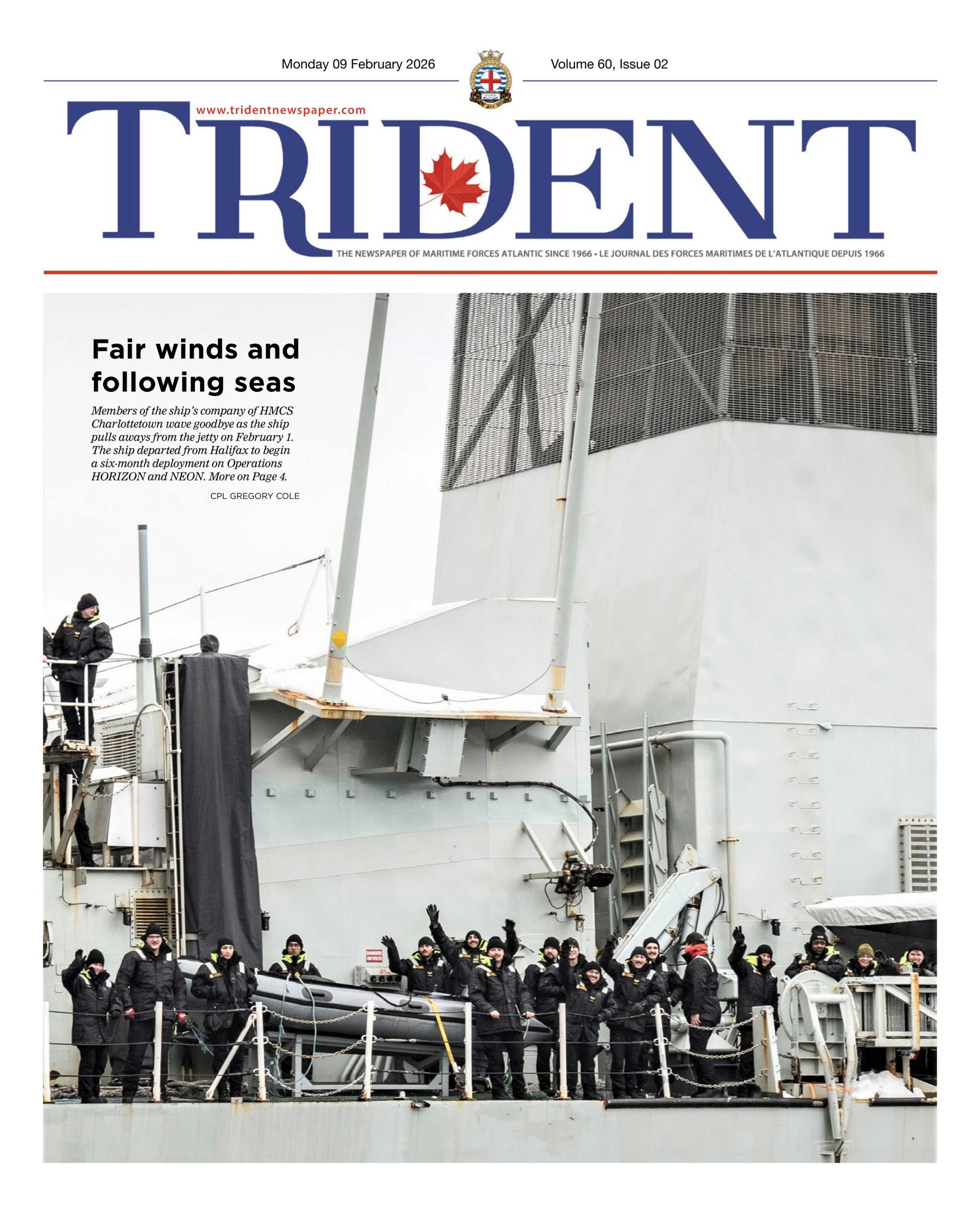Vimy 100: a centennial anniversary honoured
By Sarah-Jean Mannette, H&R MFRC
With no living veterans from the First World War, all we have to remember that period are stories and photos. They capture a time in which hoarding food was unpatriotic, propaganda encouraged citizens to buy victory bonds as a means to support the war, and communication between home and the battlefield required postage. But for one afternoon in downtown Halifax, an audience of more than 250 experienced what it was like at Vimy Ridge on April 9, 1917.
On Sunday, April 9, 2017, the 36 Canadian Brigade group (NS) Band and the First Battalion Nova Scotia Highlanders North Pipes and Drums hosted Vimy 100, a concert honouring the centennial anniversary of Canada’s victory at Vimy Ridge. Emceed by Liz Rigney, the 90-minute concert took the standing room only crowd at the Paul O’Regan Hall through the battle on the ridge with facts, relatives’ recollections, and song. Recognized in the crowd were 10 veterans from Camp Hill, who drew great applause and praise from the audience.
Throughout the concert, the music stirred up many emotions. During Oh Canada, the spectators collectively stood tall and proud. The audience sang along to songs like It’s a Long Way to Tipperary and I’m Dreaming of Home. While the pipes and drums played Stornaway Bay, for some, the droning of the bagpipes evoked the realization of the perpetual restlessness the soldiers likely felt.
HCol Boileau, a retired Army colonel, Honorary Colonel of the Halifax Rifles and author, shared a piece that he wrote, Victory at Vimy – Birth of a Nation. He highlighted the military expertise used during the battle, and shared his thoughts on the significance the victory had on Canada.
The story of the Vimy Oaks took root during the reading of Windbreak, a poem by Tony Peneff. After the land surrounding the ridge had been devastated, a soldier, Leslie Miller, came upon a half buried oak tree, among the vacant plains. He took acorns from the tree, as a memento of the victory, and planted them at his farm back home in Ontario. Although no oaks from battle remain at the ridge, several of these oak trees still stand tall, thriving on nutrients from Canadian soil on that farm in Ontario.
Throughout the performance, projected on three large screens behind the bands, were lyrics to poems and songs along with photos from the era. As the images of soldiers flashed up on the screen, their faces made the war real. Some onlookers standing in the Paul O’Regan Hall were aware of stories told to them when they were young, of stealing pigs for a unit feast, discovering their great grandfather’s dog tags in an old tin buried behind a record player in the family’s attic, and of homecomings. Oh, the homecomings. But those soldiers had families. Families that were strong and resilient. Families that sent letters each week with positive messages from home, often with a pair of knit socks and a baked good with a shelf life to make the trip across the Atlantic, and so very worried that perhaps their letter would not be read, the socks would go unworn, and the cake would spoil. For many, that was the case. And for those soldiers who made it home to their families, life was different. What they had been part of changed part of them, and in turn changed their family. When the victory parades were over and the medals were tucked away to keep from tarnishing, where was the support?
It is saddening to think of the heartbreak, challenges, fears, and obstacles that military families dealt with, sometimes silently, sometimes all alone. The Canadian Patriotic Fund was a private organization that raised money to support soldiers’ families, but back then it was only in its infancy. So celebrating 100 years of the victory at Vimy Ridge is certainly something to commemorate; celebrating the strength and resilience of military families is also worthy of honouring.
And with God Save the Queen¸ for many, the tears remained and the sense of pride was overwhelming. The crowd was united and felt empowered to continue the soldiers’ legacy for peace. The reception that followed included wartime foods made by band members from a Five Roses Flour recipe book printed in 1912. Treats included: hard tack, trench cake, gingerbread, butter tarts and reputation making pastry. The reception also allowed for the concertgoers to chat with members of the band and recount stories that had been shared with them. It was an honour for staff and volunteers of the H&R MFRC to be part of such a heartwarming event. It’s critical that moments in history that have shaped our country continue to be commemorated; it’s equally critical to recognize all those who have helped define what it means to be Canadian.
A final message: Although times have changed, the importance of military families has not. The H&R MFRC was established 30 years ago and our mission remains the same: to strengthen the well-being of all those who share the unique experience of military life. For more information, please connect with us: 902-427-7788, www.facebook.com/HalifaxRegionMFRC, www.halifaxmfrc.ca or visit us at our Halifax, Shearwater or Sydney site.






